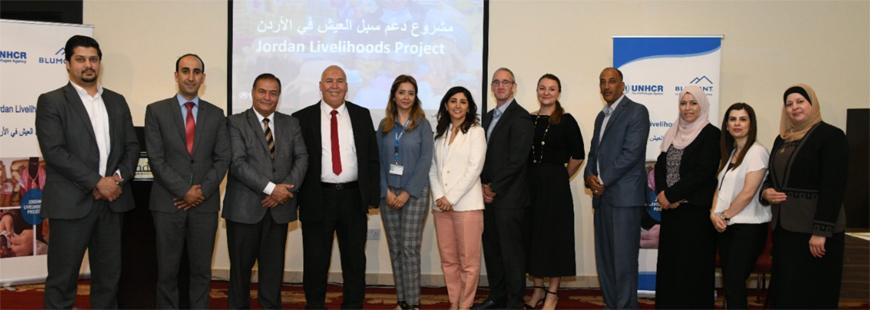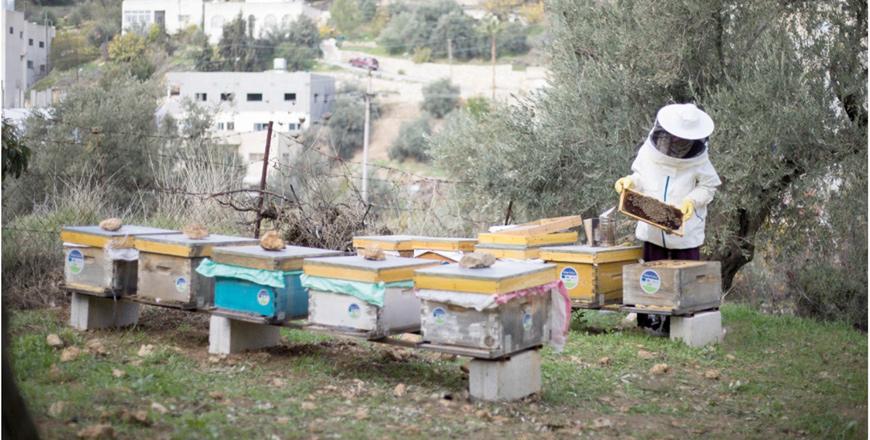You are here
Jordanian-Syrian hair salon helps strengthen Mafraq’s social cohesion
By Camille Dupire - Nov 13,2018 - Last updated at Nov 13,2018
AMMAN — Two Jordanian and Syrian women have been defying the odds facing female entrepreneurs in Jordan, since they established their own hair beauty salon in a densely populated area of Mafraq Governorate.
Jordan can appear as a path full of pitfalls for young entrepreneurs, especially women, let alone foreigners.
For Mervat S., 25, who escaped her hometown of Homs five years ago, the stakes were high as she arrived in the unknown town of Mafraq, having left her successful hairdressing business behind.
Luckily, she crossed the path of Malak M., a 26-year-old Jordanian, during a beauty vocational training course she undertook to expand her work opportunities in her host country.
“While our personalities often clashed, we could not agree more on one thing: talent and style, and we both respected each other’s work,” remembered Malak, adding that “Mervat had done my hair several times, and she was the only one I could trust with it!”
Realising they were both already receiving clients at home, the two women decided to join efforts and team up to open their own local salon.
In 2016, they established “Ward Al Shams”, inspired by the name of Malak’s son “Ward”, and Mervat’s memory of Damascus known as “Shams”.
A small hair salon located in the busy street of Al Eishneed in Mafraq Governorate, “Ward Al Shams” offers a homey, comfortable atmosphere to its customers, which encompass a harmonious mix of Jordanians and Syrians, among other local communities.
“Jordanian, Syrian… Our clients do not care about origins or nationality. They come to us for a chat, for a tea and to pamper themselves,” said Mervat, who noted that she and Malak “love meeting them outside on our street, strolling with their family and friends”.
The two partners said they faced a lot of obstacles on their way to success, including the community’s judgment and negative comments from their neighbours. “But our husbands supported us and we persisted,” they recounted, happy to see more and more customers step inside their shop every day.
“With thousands and thousands of Syrians coming to Mafraq over the years, we have seen the city changing. Especially this street,” explained Malak, rejoicing that “our street is so lively today and is a real mix of Jordan and Syria”.
Home to some 86,166 refugees and people of concern as of November 1, Mafraq is the third largest host governorate in Jordan, according to the latest UNHCR figures.
“Such stories counter the dehumanised narrative that too often opposes refugees to host communities and overshadows what individuals are doing to help one another throughout the Kingdom,” said Jordan INGO Forum Advocacy Coordinator Mathilde Vu, who took part in a campaign aimed at highlighting the “countless acts of solidarity” between people impacted by the Syrian crisis in Jordan.
A feeling shared by a young Syrian, Lara, who started her own home-based handicrafts business with a Jordanian woman.
“We as Syrians have many talents, ideas and innovations. We can use them to support ourselves and support the country we are in,” she pointed out, stressing that Syrians “are not a burden but useful” to Jordan.
Although women-owned businesses constitute only 10 per cent of all businesses in Jordan, they employ up to 55 per cent of all women in the workforce, according to a recent USAID study.
In September 2017, the Ministry of Municipal Affairs opened the door for home-based entrepreneurs to legally run their businesses within the boundaries of municipalities, in a move aimed at boosting home-based businesses' contribution to the local economy.
Related Articles
AMMAN — Abeer, a 36-year-old Jordanian woman and mother of four, was forced to take control of her family’s finances after the death of her
AMMAN — UNHCR Jordan and Blumont, an NGO that provides relief for refugees and host populations, on Wednesday signed six agreements with var
AMMAN — Malak Kharabsheh from Ajloun realised that honey production has the potential to serve as a promising home-based business after atte



















